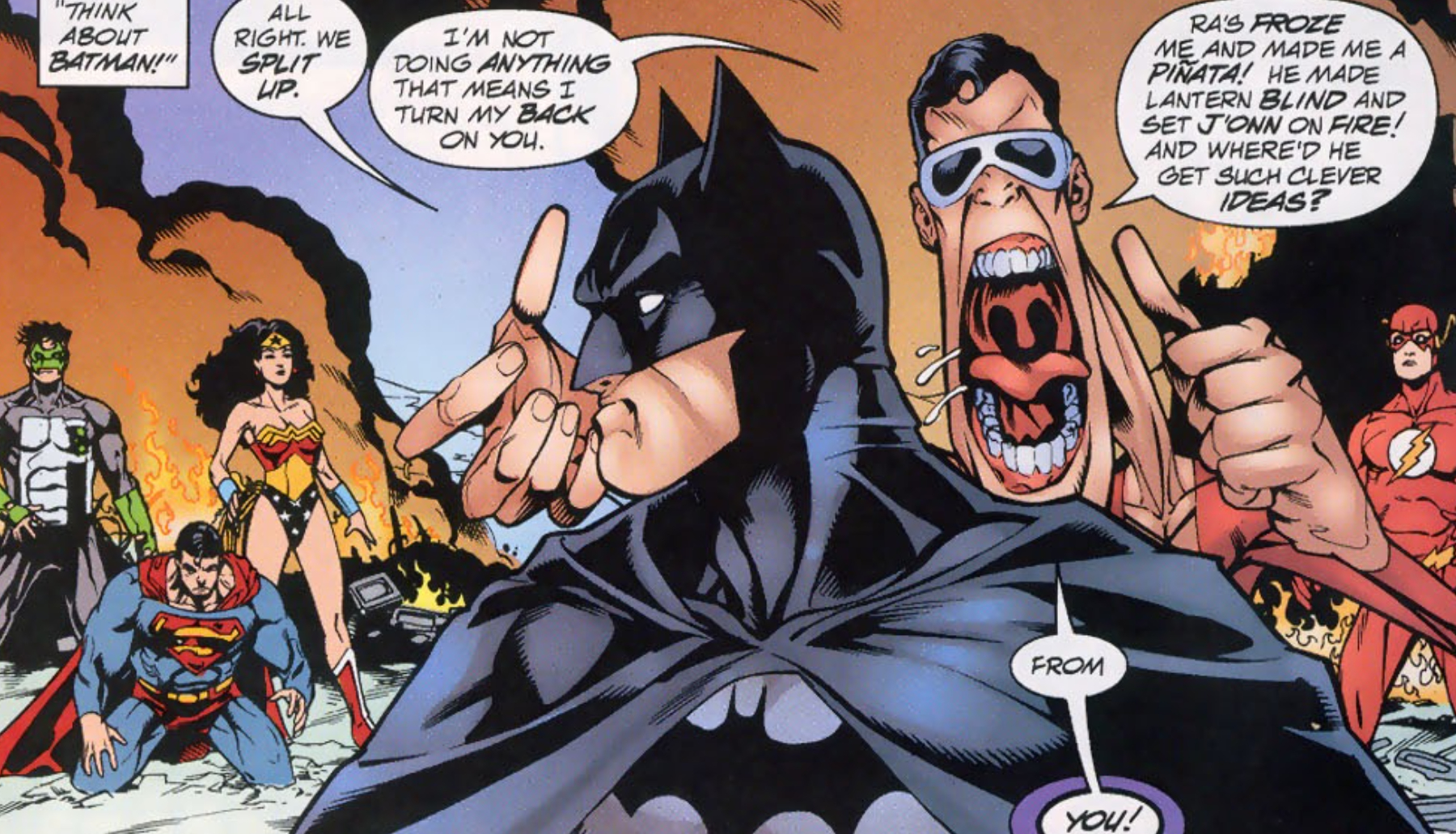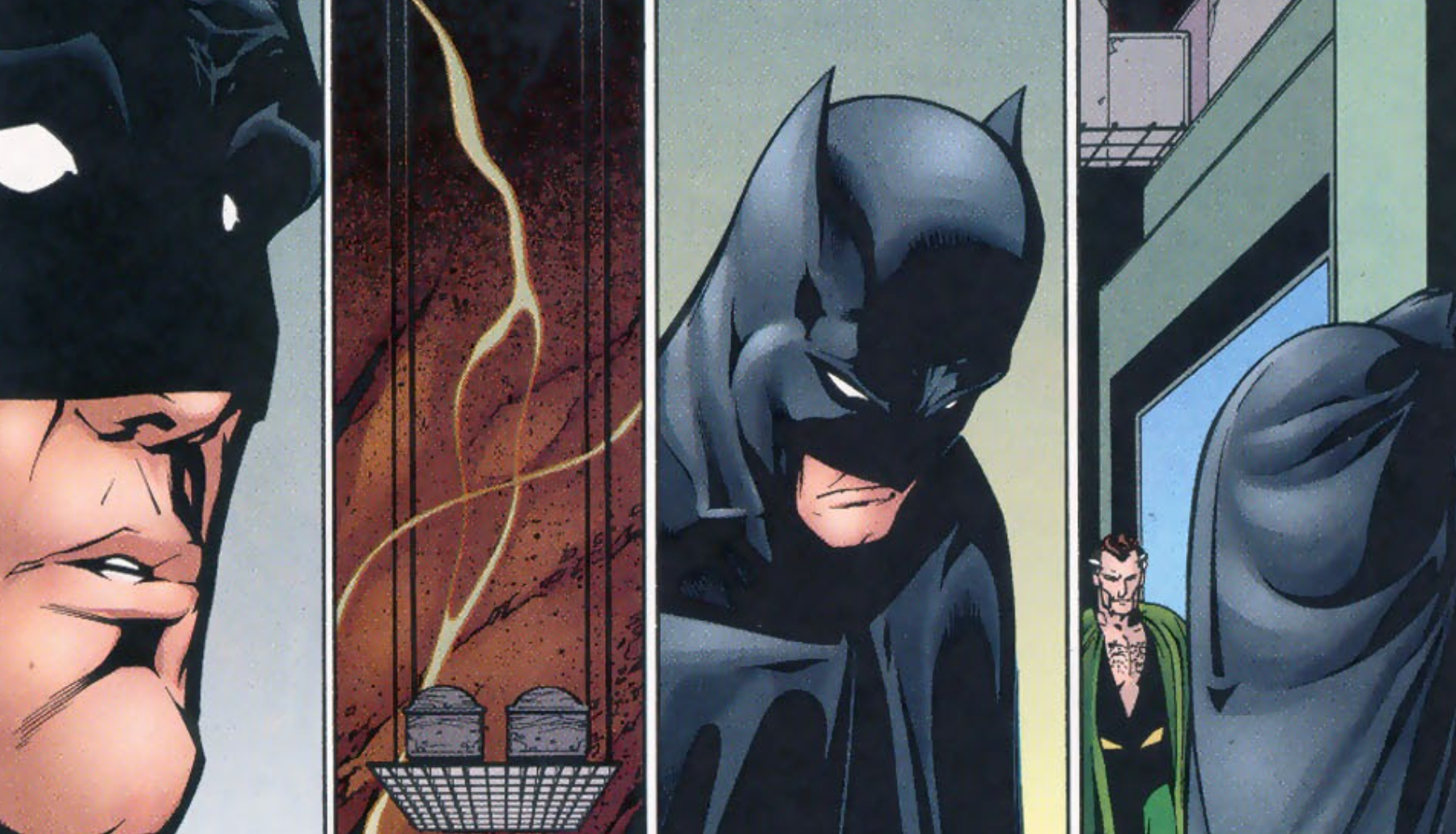
Despite Batman generally being perceived as untrusting, he has consistently shown faith towards individuals he’s formed lasting bonds with – those who have bled, sweat, and cried alongside him in their pursuit for a more equitable future. If any group deserved a place on Batman’s “trusted circle,” it would be the Justice League, or at least its principal members. However, as demonstrated in the “Tower of Babel” storyline from JLA, not even the Justice League was exempt from Batman’s profound distrust. His actions during this story not only strained his bonds with his teammates but also ignited a wave of criticism from fans, earning it one of the most contentious arcs in Batman’s history.
In the “Tower of Babel” storyline by Mark Waid, Howard Porter, and Steve Scott, published in issues #43-46 of JLA, Batman secretly devises strategies to counter his Justice League comrades if they ever turn against him. However, when Ra’s al Ghul gets hold of these “contingency plans” and uses them to dismantle the Justice League, Batman’s betrayal significantly worsens due to the breach of trust among his teammates.
The Tower of Babel: Can the Dark Knight Get Any Darker?

In the “Tower of Babel” storyline, Batman’s decisions stirred up a lot of discussions and criticisms among fans. Many felt that his contingency plans were overly unrealistic given Batman’s intellectual prowess and extensive experience. Conversely, some viewers saw these plans as a testament to Batman’s heroic stature in the DC Universe, demonstrating his ability to outmaneuver heroes who had long-standing supervillains they couldn’t defeat. However, a large group of fans felt that this storyline presented Batman in a negative light. They thought it portrayed him as a small-minded superhero, characterized by a deep-rooted inferiority complex and intensified paranoia.
Although it has its challenges, the “Tower of Babel” storyline stands out as one of the franchise’s most compelling due to its insightful exploration of Batman’s character. Unlike other tales that focus on his interpersonal struggles like mistrust, this arc offers a unique perspective that clarifies and explains these issues best. It’s important to note that members of the Justice League are not threats to society, but rather Earth’s greatest heroes who willingly risk their lives for humanity’s peace and security. However, even with such an impressive standard, Batman remains skeptical about their intentions and heroism, going as far as planning a “backdoor attack” strategy – just in case things take an unexpected turn. In essence, if there was any doubt about Batman’s neurotic nature, the “Tower of Babel” storyline should effectively dispel that notion.
Tower of Babel is a Deep Dive Into Batman’s Essential Persona

The “Tower of Babel” story emphasizes that Batman’s title as the “world’s greatest detective” is no mere boast, as it clearly demonstrates his exceptional investigative talents. Although his plan, driven by mistrust, may raise some doubts, there’s no denying his success once he set it in motion across all fronts. His actions not only underscored his unparalleled detective skills but also showcased his tactical acumen. Identifying the Justice League’s weaknesses was just the beginning; what’s truly impressive is how he meticulously planned and executed strategies to capitalize on those vulnerabilities, disarming each hero one by one. It’s safe to say that Lex Luthor pales in comparison when it comes to the Caped Crusader’s intellectual prowess.
The “Tower of Babel” narrative introduces a touch of authenticity, making the story feel more engaging. This plotline emphasizes problems often encountered in actual organizations, such as the destructive impact of mistrust, particularly in roles where it’s crucial. This can corrode relationships within a team, leaving them weak and exposed. This is especially harmful to the Justice League, as Batman had previously enjoyed their full trust. To them, his actions represented a devastating betrayal, made all the more painful by Batman’s apparent indifference towards their feelings.
The “Tower of Babel” Shadow Stretches Across the DC Comics Universe

In essence, this predicament implies that instead of concentrating on Ra’s al Ghul, the team is preoccupied with the perceived wrongs committed by Batman towards them. As Wonder Woman proposes, if a superhero group can’t rely on each other’s trustworthiness, what value do they truly hold? This notion becomes particularly relevant in the DC Universe where the theme of hero collaboration is consistently emphasized, whether in joint ventures or within their primary reality. The “Tower of Babel” scenario raises an intriguing question: How potent can heroes be when they keep their identities concealed from one another, or if they don’t feel assured that their teammates will support them?
The “Tower of Babel” storyline stands out due to its exploration of the intricate connections within the Justice League, significantly shifting how they collaborate. This aspect isn’t limited to the JLA alone; it echoes across the entire DC Comics Universe, addressing the complexities in superhero teamwork. Interestingly, this is a challenge that villains like Ra’s al Ghul hope will remain unresolved among superheroes everywhere.
Read More
- PI PREDICTION. PI cryptocurrency
- Gold Rate Forecast
- Rick and Morty Season 8: Release Date SHOCK!
- Discover Ryan Gosling & Emma Stone’s Hidden Movie Trilogy You Never Knew About!
- Mission: Impossible 8 Reveals Shocking Truth But Leaves Fans with Unanswered Questions!
- SteelSeries reveals new Arctis Nova 3 Wireless headset series for Xbox, PlayStation, Nintendo Switch, and PC
- Discover the New Psion Subclasses in D&D’s Latest Unearthed Arcana!
- Linkin Park Albums in Order: Full Tracklists and Secrets Revealed
- Masters Toronto 2025: Everything You Need to Know
- We Loved Both of These Classic Sci-Fi Films (But They’re Pretty Much the Same Movie)
2025-06-07 15:40